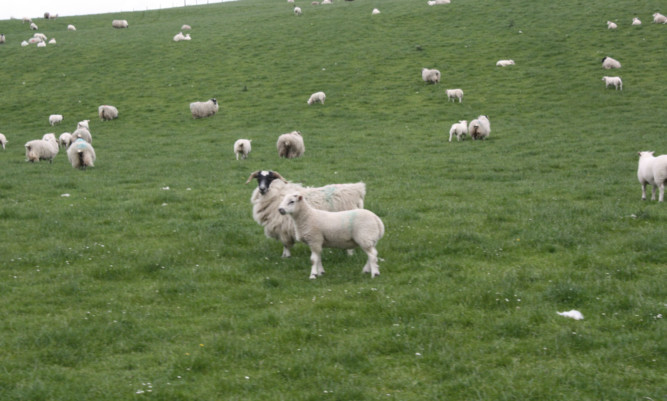Scotland’s main farming organisations have joined forces to write to Rural Affairs Secretary Richard Lochhead to urgently seek a meeting to discuss the industry’s continuing concerns over weaknesses in the activity requirement for those wishing to claim under the new Basic Payment Scheme.
It has become increasingly apparent in recent weeks that seasonal lets for grazing land are in many cases not being made available, leaving those livestock producers who rely on them high and dry.
There have been accusations this is simply creating a new breed of slipper farmer, with non-stock-keeping farmers and landowners simply claiming the BPS.
This would not have been possible had the ‘active farmer’ test relied on robust minimum stocking levels, but recent changes have opened up the possibility of BPS being available simply on the basis of environmental assessments being made throughout the year.
Now the Scottish Tenant Farmers Association, NFU Scotland, National Sheep Association Scotland and Scottish Beef Association have jointly responded to calls from members frustrated at not being able to rent seasonal grass or claim BPS and Less Favoured Area Support Scheme (LFASS) monies.
STFA chairman Christopher Nicholson said: “Seasonal lets represent about 15% of the tenanted sector, and the movement of public support payments away from active farmers will have a serious impact on the livestock producers who rely on them.
“There is also growing concern amongst tenants with limited duration tenancies and limited partnerships due to end in the next few years who can see that this behaviour of non-active landowners claiming support payments reduces the chances of non-secure tenants being able to renew viable long-term leases for the future.
“We are receiving calls from tenants and owner-occupiers from the length and breadth of Scotland who are facing disruption and uncertainty.
“The hardest hit are likely to be hill farmers, where increasing support payments provide a strong incentive for non-active landowners to make claims for support.
“While this is good news to the non-active, it is damaging to the active farming businesses who face the loss of BPS support and LFASS payments, putting at risk fragile hill livestock production.
“We would like to discuss with the Cabinet Secretary ways to build in more robust and stricter activity criteria to ensure that only genuinely active farmers are able to draw down Basic Payment Scheme payments.”
On behalf of the NFUS, Allan Bowie said: “The new CAP direct support payments should go to those actively farming the land.
“Support should be there to underpin productive businesses, not simply a reward for owning land.
“As soon as the decision was made in Europe to move away from payments linked to production, it meant people who have animals but not control of the land are at risk of losing support payments.
“We will continue to work with the Scottish Government to close the loopholes in the EU regulations that tie support only to land rather than to farming and production.
“Our members need to know that the rules on activity have been pushed to the limits, and that the barriers introduced against slipper farming are going to be effective.
“The principle of support being targeted at those taking on the risks that are inherent in farming the land is embedded in the European regulations.”
George Milne, regional manager NSA Scotland, said: “The outcome of this is totally against the original principles and policies of the Scottish Government, who have always said that the genuine active farmer, the person looking after the livestock, should receive the payments.”
